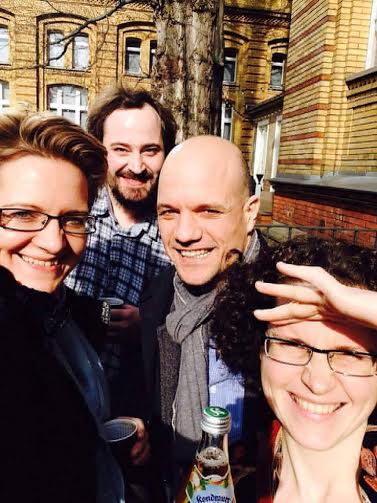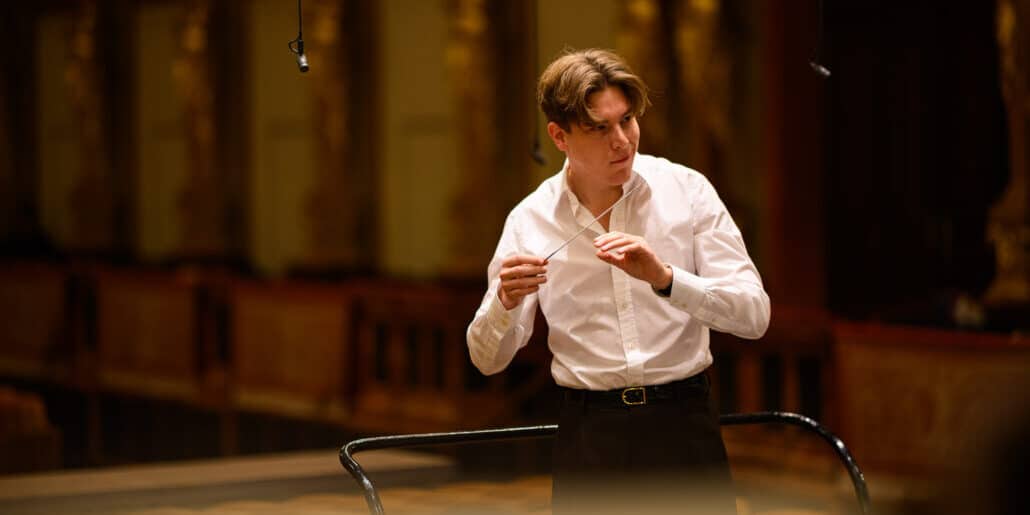How do you get to be this good?
mainI dropped in to the Wigmore Hall on a filthy night this week to hear the Berlin-based Artemis Quartet, my first experience of them since their change in formation. They played Mozart, Bartók and Mendelssohn at a pace and precision the composers could never have imagined, impressive in the two classics, utterly riveting in the night noises and mood swings of Bartók’s second quartet.
Two thoughts ran all night through my head: nobody has a right to be this good, and – how the hell do they do it?
Happily, their second violinist Anthea Kreston, was thinking along the same lines for this week’s diary. Heaven alone knows where she found the time. The answer to my question can be found in the third paragraph.

It’s 34 minutes until curtains up in SW Germany – we are in the midst of a heavy touring period now. Last night was at Wigmore – it is wonderful to return to places enough times that you have found a favorite spot to get a post-concert pint, or you can greet the back-stage staff by name.
Arriving back at the hotel around 1 am, I had a fitful couple of hours sleep before heading out the door at 5 am for my flight to Frankfurt, and onto a series of trains to Kaiserslautern, a town in southwest Germany, affectionately known as K-town by the substantial amount of American military personelle living in a series of bases here. This is the largest (over 50,000) concentration of American military outside of the USA, initially built up in the 1950’s – army and air force – the biggest American hospital on foreign soil, many schools, sports teams, country and rock shows, and a huge mall with the likes of TGI Friday to Chili’s, movie theaters and bowling spread out over a series of small towns in the region. Security is tight at the bases – I was thinking of going over to take a peek, but I wouldn’t be able to get in without a sponsor and background check.
Last night, when I got to the hall for our traditional 1.5 hours of intense rehearsal before the concert (we do this every concert, even if we are playing the same program night after night – a chance to tune some spots, do a post-mortem on the night before, set lights and staging, tweak any microphones for recordings), I has a sinking feeling. As we headed out to stage, I glanced at a program, and realized with a slight panic that I thought we were playing two Mozarts and a Bartok – but actually Mendelssohn was on the docket. With a feigned casual – “see you on stage in a second”, I quickly blue-toothed my phone and iPad (from which I read my music these days), and tried to download a copy from IMSLP, without anyone noticing.
But of course there was a signal blocker in the hall – I quickly got the password for the Wigmore office WiFi, and as we were touching spots on-stage, I was calmly (or at least I was trying to look as cool as a cucumber) bouncing back and forth between phone/email/download/import. It became obvious what I was doing, of course, and a controlled but clearly concerned series of questions – what will you do about bowings and fingerings – all of your markings, began to dribble out. “I’ve got this – no worries!”, I said, to clearly disbelieving eyes.
But – all was well. It was actually quite a lot of fun – it freed me from looking at my part, gave me some fresh ideas and the ability to react more quickly to others. The audience seemed to like it as well – that normally well-behaved audience was “whoop-whooping” it up at the end of the performance.
As I look to the next weeks – I am already totally exhausted – this week is Berlin, London, K-town, Munch, Dortmund, then to Haifa, Tel Aviv and Jerusalem before I write my next entry. I will have 14 hours at home this week, and in that time, a quick laundry turn-around, family time, and double checking my repertoire!
I am already home-sick and miss my family – we have a new idea, though. We have a mama and daughter book club – twin sets of books that we will read and talk about on FaceTime while I am gone. It is hard to be away so much, but I know everyone back home in Berlin is in good hands.





I can never understand why Americans find it necessary to still have army and air force camps in Britain, Germany and Japan. Don’t they know the war was over years ago?
It’s the Russians. That is the answer, always.
It’s really so that some Americans can get a chance to taste good beer, sausage, or sushi, even if they wouldn’t have been able to travel on their own budget.
Instead of asking why “the Americans” feel it necessary to be there in Britain, Germany and Japan, ask the British, Germans and Japanese why they still feel it necessary to have us.
Given the prevailing isolationist mood in current US politics, if they should voice a desire to part company, I’m sure we would begin moving out tomorrow.
The British, German and Japanese do not feel the need to have you.
But the US has a global hegemony agenda. NATO and military bases all over the world. About 200 major military installations outside of the US. And then they call the Russians expansions. It’s quite ridiculous, if it wasn’t so sad.
That NATO serves to keep the US in Europe and the Russians as an enemy is not a secret. If it wasn’t for US interventions, Russia and Europe by now would probably have close economic ties and mutual collaboration. Such entity would threaten US superpower status though. So it was not allowed to happen. If you want to know what really happened in the recent history…
Good question. Europe seems determined to commit suicide. Why are we trying to stop them?
Have heard a CD by the Artemis; stunningly good and fresh!
If she is playing off her iPad these days, hard to understand why she didn’t already have the music in place. It doesn’t appreciably add to the weight 🙂
I dare say that 1,103 items currently in ForScore on my iPad far exceeds the number of items in their active pile, and yet at just over 6 GB of storage, occupies a small fraction of the storage of even the most stripped-down iPad model. Trying to keep only the music you expect to play soon is asking for trouble, but it made for a story here. I often go a step further and carry a full set of parts and a score; having parts I’ve bailed out a number of substitutes when the missing player didn’t pass along the music, and playing from the score often gives new appreciation of the composer’s work.
I do minimal marking of my parts, in general, but ForScore offers a versioning system which allows me to keep and switch between multiple versions, so grabbing a fresh copy when desired is easy, as is consulting what choices were made previously.
This is not intended as a ForScore testimonial; there are other apps out there, but the first one I tried worked well enough that I looked no further. Whatever the app used, the primary advantages accrue only when you have the music loaded!
HI Bill –
This is my first set of concerts with Quartet playing off the iPad. I just haven’t scanned and inputted my parts yet – just the ones I *thought* I was playing.
But maybe when I get home I can get the rest scanned. Boy oh boy do I love IMSLP sometimes, though!
Hi, Anthea, of course I realized yesterday that you were playing from an “electrical score” (still as the only one among 4), and it was the first time I saw you using this. But I had no clue as to how long you had switched from print to iPad. Still fresh, then … good luck further on, may you always have the right score in front of you ;-))
More and more Lincoln Center Chamber Music Society artists and even Juilliard students are using iPads instead of printed music.
Saturday morning and I think my week was busy!!! Phew – you leave me breathless. And yet in the midst of all that you can move into the zone of music making at such an intense and high level. What a wonderful gift to us as listeners. With such an extensive travel schedule you just need to consider a simply bypass to drop by in Sydney. We’d love to have you.
Marg –
I would love to! Can you email me? Let’s cook something up…..
Anthea